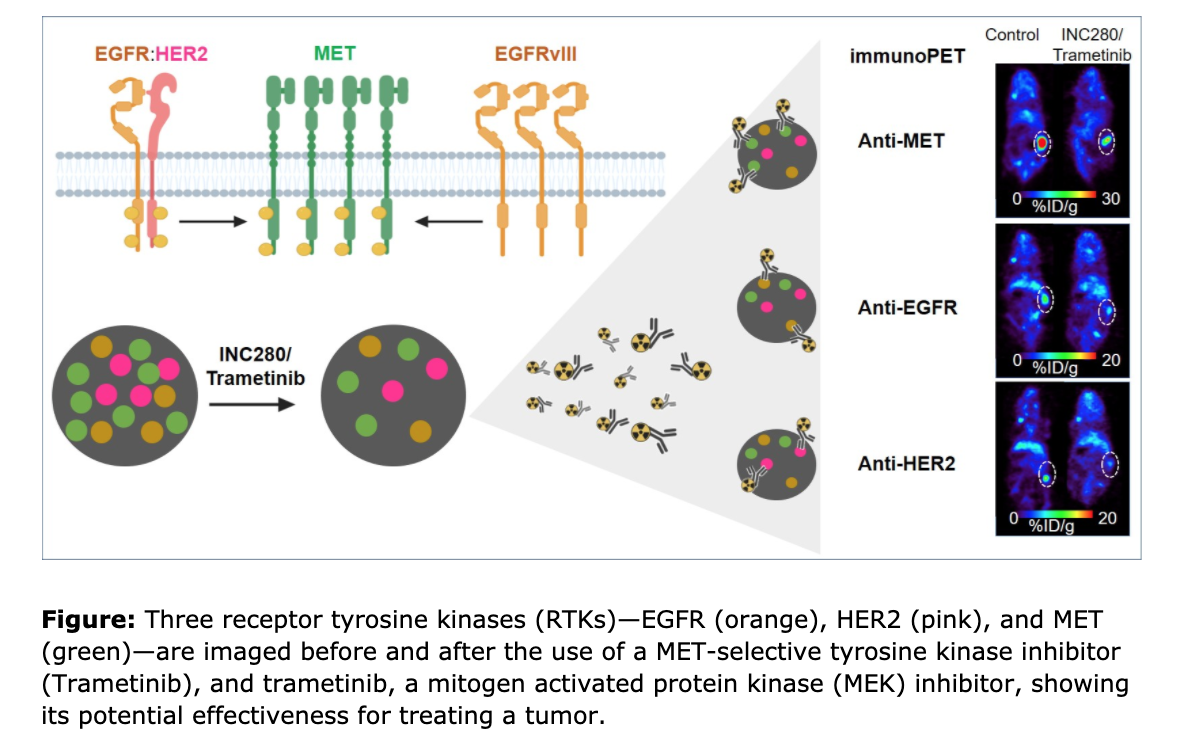Clinicians Gain Early Insight using Immuno-PET to Evaluate Tumor Response from Targeted Therapy

New research published in the Journal of Nuclear Medicine reports that immuno-PET imaging can provide early insight into a tumor’s response to targeted therapy, allowing physicians to select the most effective treatment for patients who have cancer. Immuno-PET uses a “tracer” to follow an antibody directed to a specific tumor. Using this technique, the authors were able to successfully visualize changes in different cancer receptors (receptor tyrosine kinases, or RTKs) within tumors during targeted therapies. This capability will enable clinicians to evaluate how a tumor responds to the treatment and determine treatment effectiveness in the patient soon after its administration.
“When healthy cells turn into cancer cells, there is a disruption in the RTK signaling. This makes RTKs a valuable therapeutic and imaging target,” said Patricia Pereira, Ph.D., a research associate at Memorial Sloan Kettering Cancer Center in New York, New York. “Techniques that allow for real-time monitoring of RTK dynamics, such as immuno-PET, could be very beneficial in informing treatment choice and predicting response.”
In this study, researchers used immuno-PET and three different antibodies to visualize three RTKs (MET, EGFR, and HER2) in a kidney tumor. Their results confirmed that immuno-PET visualizes RTKs in ways that determine the level of protein within a tumor. After administering a treatment, immuno-PET can detect changes in RTK levels that indicate whether a tumor is responsive to that treatment.
“Precision medicine involves the identification of certain gene mutations and expressions, as well as other features, that contribute individual tumor signatures,” noted Pereira. “Our study shows that immuno-PET is a powerful technique to document RTK changes and predict tumors' response to targeted therapies.”